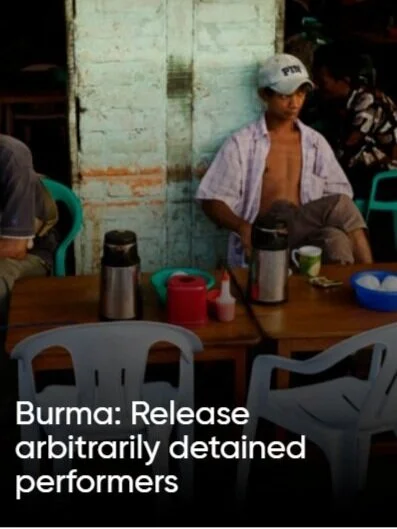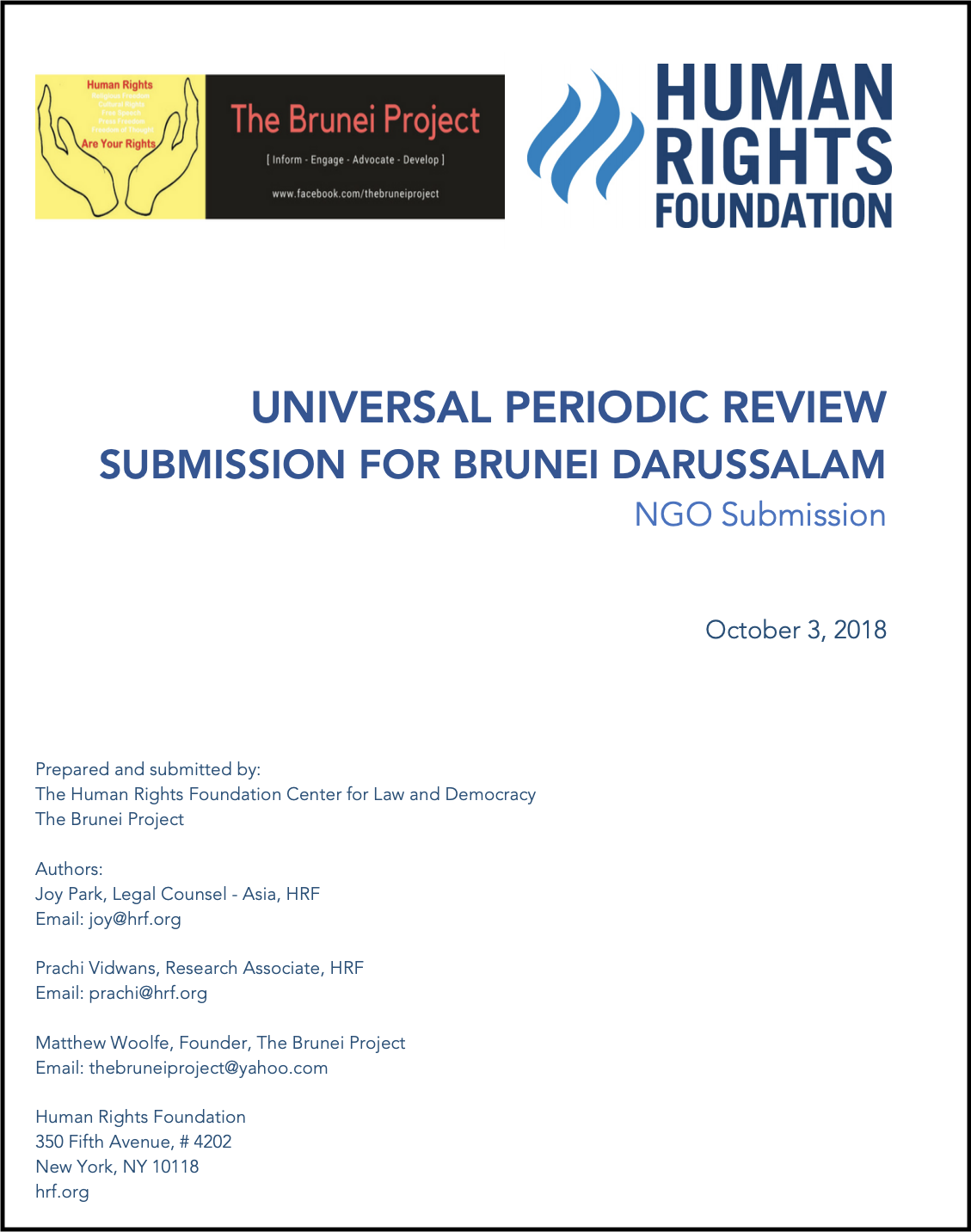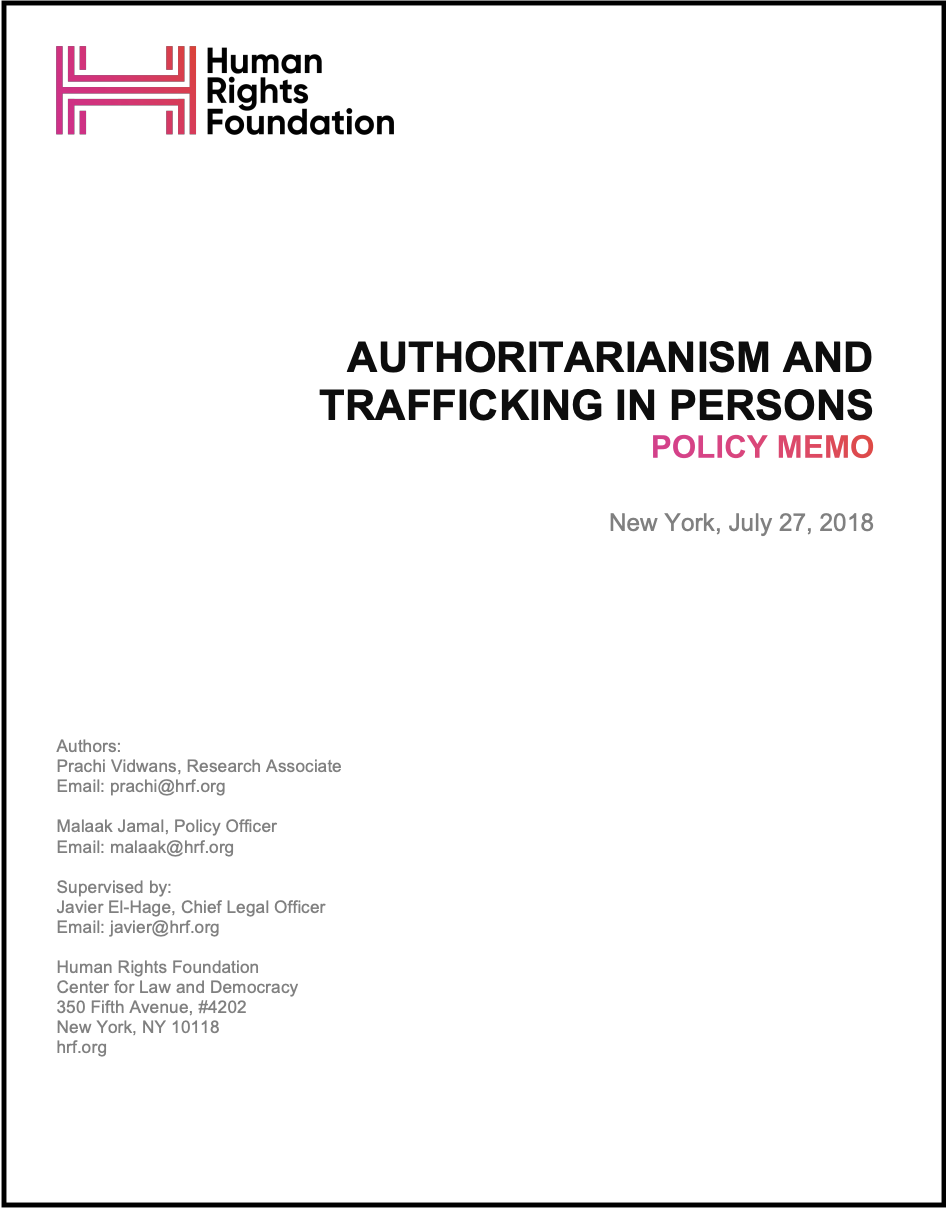research
I have held various positions as a researcher during my career, in addition to completing research for my bachelor’s and master’s. Below is some of the research-based work I completed during my time as a research associate at the Human Rights Foundation.
Individual complaint: The Peacock Generation Case
United Nations Submission | February 26, 2019 | HRF & the Assistance Association for Political Prisoners of Burma
HRF partnered with the Assistance Association for Political Prisoners of Burma to submit a case to the U.N. Working Group on Arbitrary Detention on behalf of six Burmese political prisoners. The six are members of the Peacock Generation, a satirical performance troupe from Rangoon, and were arrested in April 2019 for criticizing the military during their artistic performances. They were convicted of criminal insult and online defamation. We argue that the detentions and convictions violate the Peacock Generation’s right to freedom of expression.
The cost and consequences of the war on drugs
In-Depth Report | August 7, 2019 | Prachi Vidwans and Alvaro Piaggio
For many years, international human rights organizations avoided taking a stance on drug policy, in part because of the indirect relationship connecting criminal groups to the international obligations of states. In an effort to address this gap and to demonstrate solidarity with drug policy activists, HRF assigned me and economist Alvaro Piaggio to create a report detailing the human rights effects of global drug prohibition. We worked to connect the dots between the international prohibition standard, dynamics in the illicit market, and human rights outcomes. In the process, we uncovered a connection between democracy and drug policy that has been largely under-researched. In our three case studies (Colombia, Mexico, and the United States), prohibition is exacerbating flaws in democratic systems — corruption, lack of accountability, rule of law weaknesses, institutional inequality — and, ultimately, weakens democracy. Investing in democratic institutions is crucial.
Open Letter to U.N. Special Rapporteur on Censorship Of North Korean Defectors iN South Korea
February 27, 2019 | HRF Staff
In early 2019, HRF sent an open letter to the U.N. special rapporteur on the situation of rights in the Democratic People’s Republic of Korea (North Korea) to highlight the increased censorship of North Korean defectors under the government of President Moon Jae-in. My colleagues and I produced this letter after the special rapporteur indicated he would like to learn more about this topic at a private meeting. Our primary source of data came from interviews with North Korean defectors living in South Korea, some of whom had previously reported to us that they had been prevented from carrying out their activism throughout the previous year. The letter was co-signed by the Committee for Human Rights in North Korea (HRNK) and North Korean Freedom Coalition (NKFC). Shortly after the publication of this letter, the U.S. State Department called on South Korea to respect the rights of activists.
Joint Submission to Brunei’s Universal Periodic Review
October 3, 2018 | HRF Staff and the Brunei Project
I contributed research and writing to a Universal Periodic Review (UPR) submission on Brunei Darussalam, in partnership with Matthew Woolfe at the Brunei Project. In it, we highlighted Brunei’s failure to protect its LGBT+ minority, its use of the Sedition Act against critics of the government, and its intent to violate freedom of religion and freedom from torture by implementing its Syariah Penal Code. In January 2019, we received a note from the Office of the High Commissioner for Human Rights noting that our submission was used meaningfully in the UPR process and by the high commissioner in her follow-up letter to the Sultan of Brunei.
Authoritarianism and trafficking in persons
Report | November 29, 2018 | Prachi Vidwans and Malaak Jamal
In this policy memo, Malaak Jamal and I used the U.S. State Department’s annual Trafficking in Persons report to examine the connection between regime type and trafficking in persons. The correlation is clear: States with stronger anti-trafficking policies and outcomes tend to be democratic, and states with weaker policies and outcomes tend to be authoritarian. We suggest that authoritarians fail to combat trafficking effectively because they are marked by weak rule of law, embattled civil societies, state-sanctioned corruption, and other practices that weaken government accountability and prevent victims from seeking justice or advocating for policy shifts. This finding is significant because activists in anti-trafficking spaces tend to use group rights or ICESCR rights in their advocacy. Connecting the struggle to democratic rights broadens the tools and language available to these activists, and can create common cause among pro-democratic and anti-slavery advocates.
This report was also adapted into a 2019 op-ed for TIME, and was cited in a Congressional Research Service report.
Press Releases
In my first year on HRF’s legal and policy team, before a shift in the organization’s communications policy, I managed the legal team’s political analysis calendar. Each month, we would have a pitch meeting to determine with topics we would address in greater detail for our mailing list subscribers via press releases. Below are a selection of the press releases I worked on, which required a rapid response to developing news stories, many hours of research, and/or interviews with activists and experts to add depth to our analysis.
Venezuela: HRF Welcomes International Recognition of Juan Guaidó as President | January 23, 2018
Journalist Jamal Khashoggi Allegedly Killed for Criticism of Saudi Prince | October 9, 2018
Elections in Zimbabwe and Cambodia Violate Democratic Standards | July 27, 2018
Nicaragua: HRF Condemns Killings by Ortega’s Regime | July 11, 2018
Jordan’s Authoritarian Rulers Must Hand Power to the People | June 14, 2018
Azerbaijan’s Aliyev Secures Fourth Term in Rigged Elections | April 12, 2018





